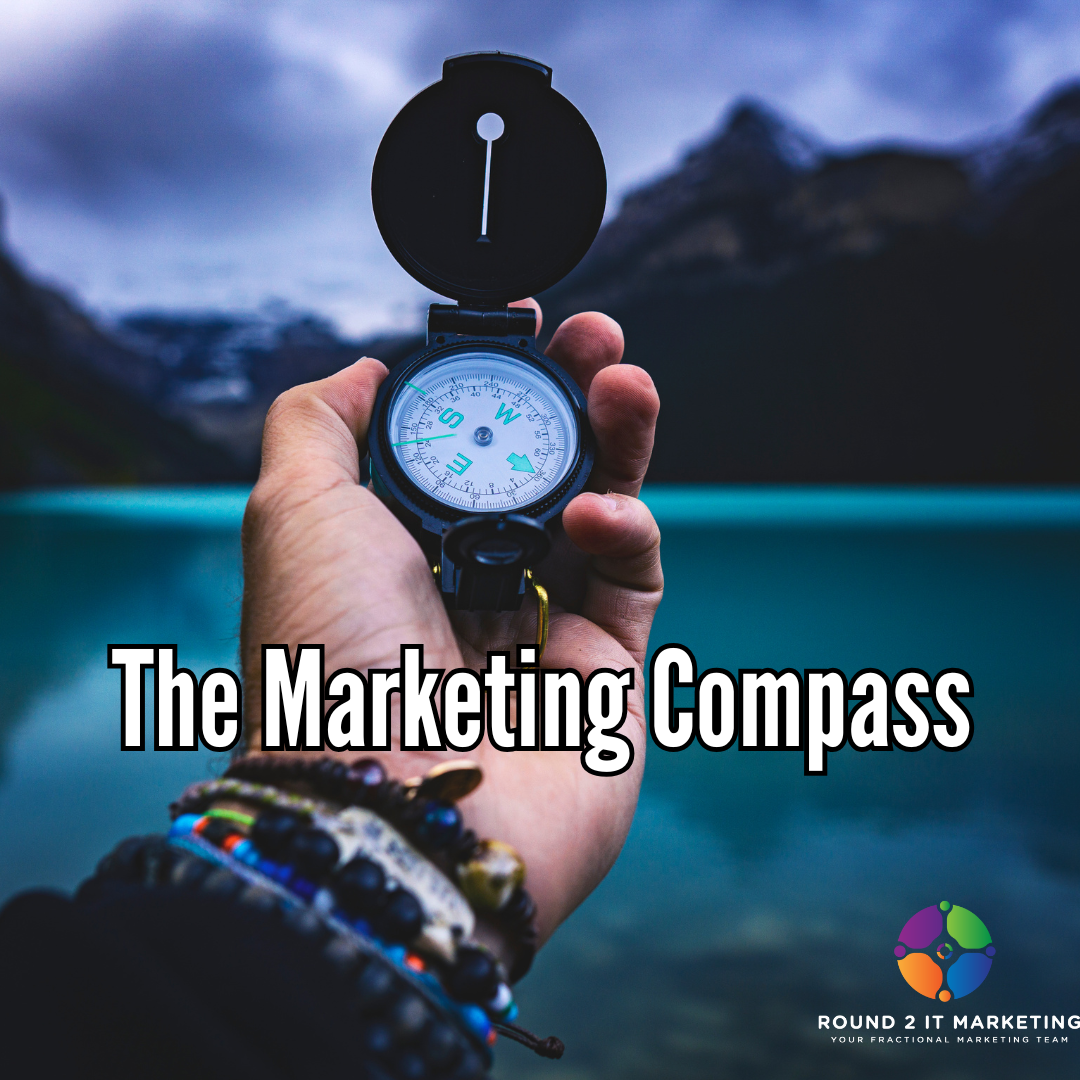The Marketing Compass: Your Strategic Guide to Business Growth

marketing without a strategy is like navigating without a compass
Imagine setting sail without a compass. Even with a strong ship and motivated crew, you risk drifting aimlessly without a clear direction. In today’s competitive market, a well-defined marketing strategy is that essential compass, guiding you toward sustainable growth.
At Round2It Marketing, we’ve developed The Marketing Compass, a structured framework designed to help businesses scale beyond word-of-mouth referrals. This guide will help you define your audience, refine your messaging, choose the right channels, and measure success effectively.
Why a Marketing Strategy is Essential
Marketing isn’t just about promotions or ads. It’s about understanding your market, customers, and how to engage them effectively. Without a strategy, businesses waste resources on disconnected efforts that fail to drive real growth.
A strong marketing strategy:
✅ Aligns marketing efforts with business goals
✅ Improves customer targeting and engagement
✅ Ensures consistent messaging across channels
✅ Provides measurable benchmarks for success
Let’s dive into the six key components of The Marketing Compass that will set you on the right path.
1. Who: Identifying Your Ideal Customer
Why Knowing Your Audience Matters
Not all customers are created equal. The better you define your ideal customer profile, the more effective your marketing efforts will be.
Key Questions to Consider
- What are the demographics of your ideal customer? (Age, location, income, industry, etc.)
- What challenges or pain points do they face?
- How do they make purchasing decisions?
- What influences their buying behavior? (Friends, online reviews, social proof?)
By answering these questions, you gain clarity on who you should be targeting and how to craft messaging that resonates.
2. What: Defining Your Product or Service’s Value
Customers Buy Outcomes, Not Features
Your customers aren’t just buying a product or service—they are buying a transformation. Understanding and clearly articulating the outcome your offering provides is key to effective marketing.
Key Questions to Answer
- What transformation does your product/service create for customers?
- How does your offering solve their specific pain points?
- What objections might they have, and how can you address them upfront?
Your messaging should position the customer as the hero and your product as the guide that helps them succeed.
3. Where: Finding the Right Marketing Channels
Meet Your Audience Where They Are
Marketing success depends on choosing the right platforms and channels to engage with your audience. Spreading yourself too thin can dilute results, so focus on where your customers already spend time.
Key Questions to Determine the Best Channels
- Where does your ideal customer consume content? (Social media, blogs, email, etc.)
- What type of content do they engage with most? (Videos, articles, infographics?)
- Which influencers or communities do they trust?
Your marketing efforts should align with audience behavior to maximize reach and engagement.
4. When: Creating a Marketing Schedule for Consistency
Consistency Builds Trust
Successful marketing isn’t about one-off campaigns—it’s about showing up consistently. A well-planned content schedule ensures you stay top-of-mind with your audience.
Key Questions to Build a Consistent Schedule
- When are your customers most active and receptive?
- How will you maintain a regular content creation process?
- What tools or systems will help ensure consistency?
Pro Tip: Use tools like Trello, Asana, or Notion to manage content schedules and ensure your marketing stays on track.
5. Why: Understanding Your Unique Value Proposition
Stand Out from Competitors
Customers have options. Your job is to communicate why they should choose your business over competitors. This requires a deep understanding of your competitive advantage.
Key Questions to Clarify Your Unique Value
- What do your best customers say about why they chose you?
- What makes your business different from competitors?
- What customer feedback have you received that highlights your strengths?
Gather insights from customer testimonials, competitor research, and internal reflection to craft a compelling value proposition.
6. How: Executing and Measuring Your Marketing Plan
Strategy Means Nothing Without Execution
A strong strategy only works if you take action. This final step ensures you have a clear plan for implementation, tracking, and optimizing performance.
Key Questions for Effective Execution
- Which 2–3 marketing channels will you prioritize?
- What types of content will you create?
- What are your top 2–3 marketing KPIs (leads, conversions, website traffic)?
- How often will you review and adjust your approach?
Marketing is an iterative process—analyzing data and making improvements ensures continued success.
Final Thoughts: Chart Your Course for Growth
A marketing strategy isn’t static; it evolves as you test, learn, and refine your approach. The Marketing Compass provides a structured roadmap to help you stay on course and drive measurable growth.
If you need help implementing this strategy, Round2It Marketing is here to guide you. Contact us today to discuss how we can tailor this framework to your business goals.erent source.
Round 2 It Marketing


